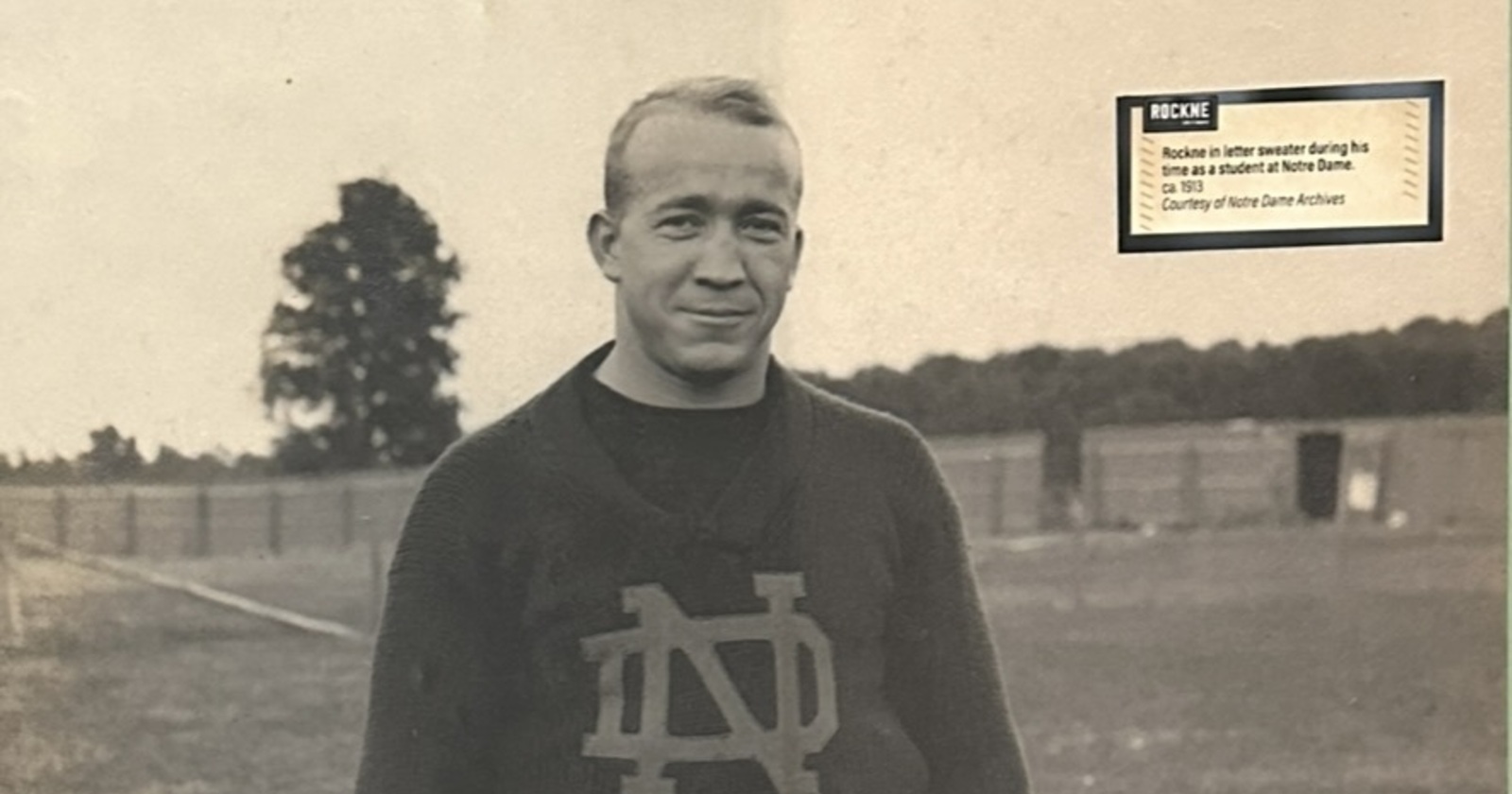Knute Rockne, a name synonymous with Notre Dame and college football greatness, continues to captivate audiences nearly a century after his passing. This article delves into the extraordinary life and enduring legacy of Rockne, exploring his transformative impact on the sport and the university. From his innovative coaching strategies to his charismatic personality, Rockne’s influence extends far beyond the gridiron.
We’ll examine Rockne’s early life as an immigrant, his rise to football stardom, and his revolutionary coaching techniques. We’ll also explore the personal side of Rockne, including his family life and his untimely death. This comprehensive overview aims to provide a holistic understanding of the man behind the legend and the reasons for his lasting appeal.
From Norway to Notre Dame: The Early Life of Knute Rockne
Born Knut Larsen Rokne in Voss, Norway, in 1888, Rockne’s journey to becoming an American football icon began with his family’s immigration to Chicago when he was just five years old. This early experience as an immigrant shaped his character and instilled in him a strong work ethic, which would later contribute to his success on and off the field.
Rockne’s pursuit of higher education led him to Notre Dame, where he initially focused on chemistry, studying under the esteemed Rev. Julius Nieuwland. However, his athletic talents soon drew him to the football field, where he quickly made a name for himself.
His exceptional speed and agility, combined with his sharp intellect, made him a standout player. A replica Rockne-era uniform is a piece that is displayed in the exhibit.
Revolutionizing the Game: The Forward Pass and Early Coaching Innovations
Rockne’s impact on football extends far beyond his impressive win-loss record. He is credited with popularizing the forward pass, a revolutionary tactic that transformed the game from a ground-based slugfest into a more dynamic and exciting spectacle. Perfecting this play with teammate Gus Dorais on the beaches of Cedar Point, Ohio, Rockne unleashed the forward pass on an unsuspecting college football world.
The unveiling of the forward pass at the 1913 Notre Dame-Army game marked a turning point in football history. Rockne’s innovative use of the pass caught the Army team off guard and propelled Notre Dame to a stunning victory. This victory not only established Notre Dame as a football powerhouse but also ushered in a new era of offensive football.
Legends Forged: George Gipp and the Four Horsemen
Rockne’s coaching career was marked by his ability to identify and develop exceptional talent. Two of the most iconic figures in Notre Dame football history, George Gipp and the Four Horsemen, emerged under his tutelage. Rockne mentored ill-fated Irish football great George Gipp.
The legend of George Gipp, immortalized in the film “Knute Rockne: All-American,” continues to inspire generations of Notre Dame fans. Gipp’s deathbed speech, urging Rockne to “win one for the Gipper,” became a rallying cry for the team and solidified Rockne’s status as a master motivator.
The Four Horsemen, the legendary 1924 backfield consisting of Jim Crowley, Elmer Layden, Harry Stuhldreher, and Don Miller, represented the epitome of Rockne’s offensive prowess. Their speed, skill, and teamwork captivated the nation and helped Notre Dame achieve unparalleled success.
More Than a Coach: Rockne’s Life Beyond the Football Field
While Rockne’s accomplishments on the football field are undeniable, his life beyond the gridiron reveals a more complex and multifaceted individual. He was a dedicated family man, a savvy businessman, and a respected member of the Notre Dame community.
Rockne’s entrepreneurial spirit led him to explore various business opportunities, including providing inspirational speeches to salesmen for the Studebaker Corp. In fact, after his death, Studebaker produced the Rockne model for two years during the Depression.
He was also known for his engaging personality and his ability to connect with people from all walks of life. These qualities made him not only a successful coach but also a beloved figure in the Notre Dame community and beyond.
A Tragic Loss: Rockne’s Untimely Death and Enduring Legacy
Rockne’s life was tragically cut short in March 1931 when he died in a plane crash in Kansas at the age of 43. The news of his death sent shockwaves across the nation, and his funeral was attended by thousands of mourners. Fragments from the plane that crashed in Kansas in March 1931 are also on display.
Despite his untimely passing, Rockne’s legacy continues to inspire and influence the world of college football. His coaching techniques, his innovative offensive strategies, and his unwavering commitment to excellence have left an indelible mark on the game.
His greatest legacy to college football likely is the college coaching tree he planted. The exhibit counts more than 60 former Rockne teammates and players who went on to coach at the college level, many aided by a well-placed recommendation from Rockne himself.
A Lasting Inspiration: The Enduring Appeal of Knute Rockne
Knute Rockne’s story is one of innovation, leadership, and unwavering dedication. His impact on Notre Dame and college football is immeasurable, and his legacy continues to inspire generations of players, coaches, and fans.
From his humble beginnings as an immigrant to his rise as a football icon, Rockne’s journey is a testament to the power of hard work, perseverance, and a relentless pursuit of excellence. Nearly a century after his death, Knute Rockne remains a gridiron master and a true legend of the game.

Leave a Reply